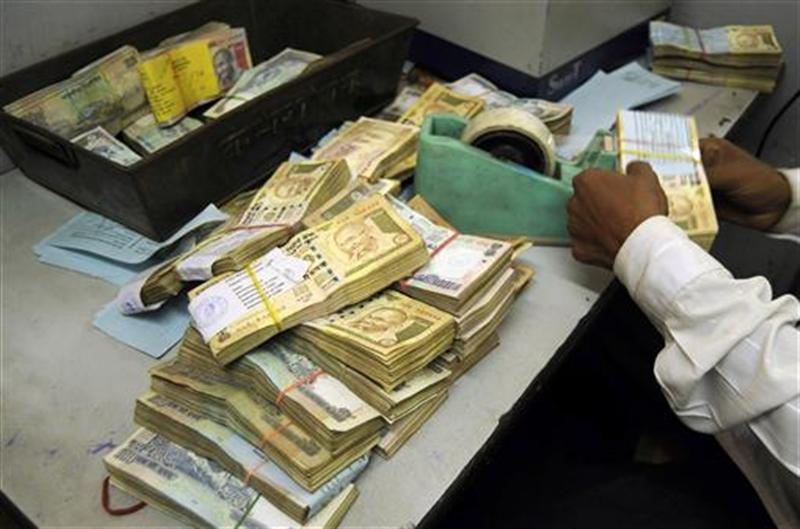Fine For Possession Of More Than 10 Banned Notes

NEW DELHI : The Ordinance approved by the Union Cabinet on Wednesday to make holding of old 1,000 and 500 rupee notes after March 31 beyond a threshold amount a criminal offence will attract a minimum monetary fine of Rs 10,000, as per media reports.It will be effective from December 31.
Proposal of four-year jail term for anyone possessing a number of demonetised currency after March 31, 2017 was not incorporated in the Ordinance.The Ordinance will have to sent to the President and after his assent will come into force.
The Ordinance provides for amending the Reserve Bank of India (RBI) Act to provide legislative support for extinguishing the demonetised banknotes that are not returned.
The 50-day window for depositing the old notes in bank accounts and post offices expires tomorrow ( December 30).Thereafter, people who failed to do so due to exceptional circumstances will have to deposit them at the Reserve Bank, citing the reason for their inability.
The Specified Bank Notes Cessation Of Liabilities Ordinance says from December 31, no one is allowed to keep, transfer or receive banned notes of Rs. 500 and Rs. 1000. The exception will be people authorised by a court or the Reserve Bank of India.
The maximum number of banned currency notes that anyone will be allowed is 10.For the purpose of study, research and numismatics, up to 25 of the banned notes can be kept.
If anyone is found in possession of more than 10 banned notes after the grace period, they will be punished with a fine of Rs. 10,000 or five times the total face value of the notes found in his possession – whichever is higher.
Those who couldn’t deposit old notes because they were abroad, in inaccessible areas or in the military, can do so at the Reserve Bank till March 31. But the RBI has to be satisfied with the reason and their bank accounts should be KYC compliant.
Anyone caught depositing money to the Reserve Bank with a false explanation will be punished with a fine of Rs. 50,000 or five times the total face value of the notes found in his possession – whichever is higher.
With this ordinance, Prime Minister Narendra Modi and his cabinet have ended the liability of the government and the central bank on the banned notes to prevent future litigation. Unless the liability ends, the RBI cannot turn away anyone carrying an old note.
On November 8 while announcing the ban, PM Modi said the notes ban will help flush out black or unaccounted money. The government’s move had taken 86 per cent of money out of circulation. According to the Reserve Bank, more than Rs. 13 lakh crore in old notes have returned to the system as deposits.
In 1978, a similar Ordinance was issued to end the government’s liability after Rs 1,000, Rs 5,000 and Rs 10,000 notes were demonetised by the Morarji Desai-led government.
First Published: Thursday, December 29, 2016 – 17:32

